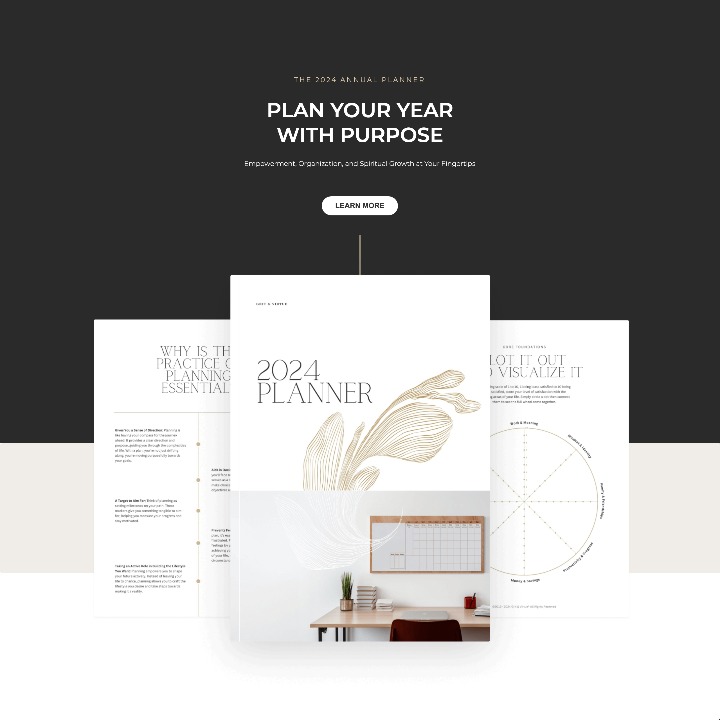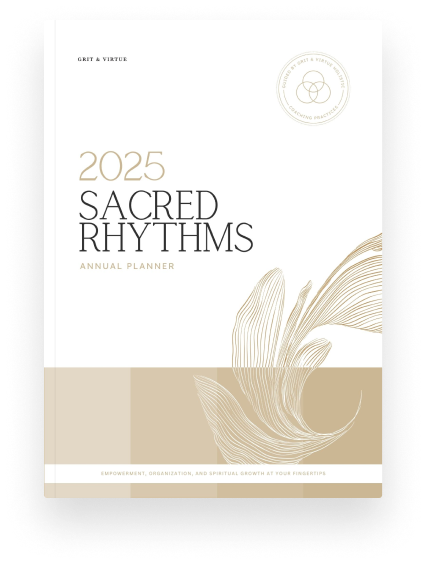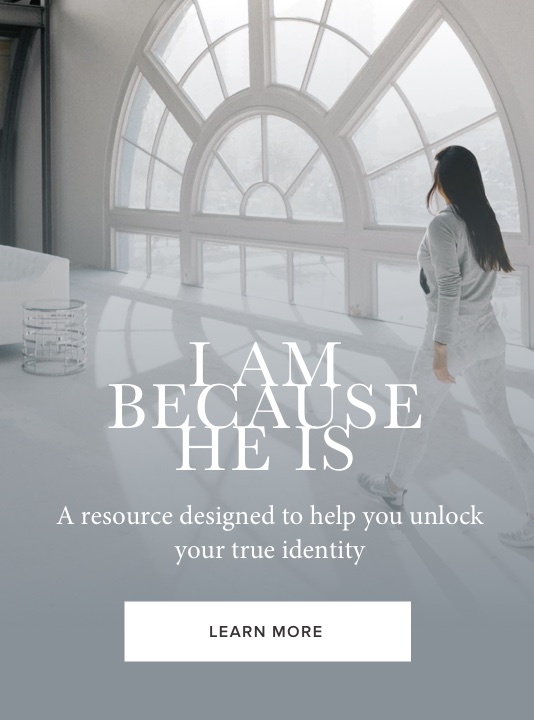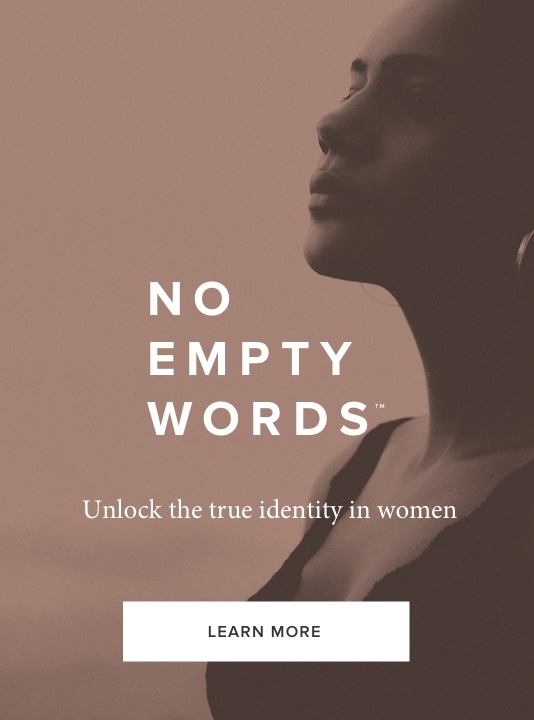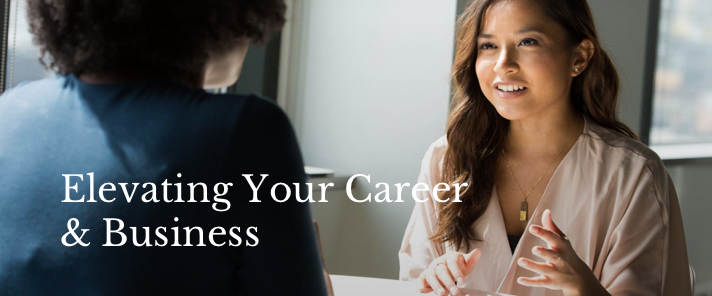Personality tests are everywhere. Just this month, my daughter has come home from school with the results of a tween version of the MBTI revealing she is Captain America, Cinderella, Tarzan, C-3PO and Neville Longbottom (ISFJ in case you were wondering), my husband came home from a work training where he took the DISC assessment, I’ve been consuming podcasts, articles and books focused on the Enneagram, and not that long ago I spent about 30 minutes with friends finding out which character from This is Us we are (no judgment here, this is a safe place). So, it wasn’t really surprising when we decided we needed to talk about these personal development tools at Grit & Virtue.
There’s a good reason these personality tests are showing up everywhere. Our personalities matter.
Personality tests provide a wealth of information that help us see more clearly who we are, i.e. how God created us (And in case you ever wonder, how God created you is good.), thus making them extremely beneficial for our personal development.
Beneficial? How so?
- They help us become more self aware of how God wired us to operate, which helps us take better care of ourselves and those around us.
- They bring clarity to our strengths and weaknesses so that we can improve.
- They give us great insight into how we function best – both at work and at home.
- They can provide valuable information for our education, career and even our personal life.
So, we’ve gathered up some information for 5 different personality tests, because if approached with a growth mindset, they can give you helpful insights into who you are, how God created you and how you can grow and develop as a woman on mission.
1. Enneagram
Why it’s good for personal development:
The RHETI (Riso-Hudson Enneagram Type Indicator), or Enneagram as it is commonly referred, has been around for centuries but has become increasingly popular recently. The theory is that out of nine basic personality types, you have one that is more dominant and possibly paired with 1-2 other personality types called wings that also add important elements to your personality and how you function in life. Based on what your core fears and desires are, the Enneagram will describe why you think, feel and act the way you do. The knowledge gained from knowing your Enneagram number allows you to identify behaviors that are limiting, thus empowering and equipping you to make positive changes. What is great about the Enneagram is that no one is put into a nice tidy box.
It leaves room for the complexities that make up who we are. Many people have found it useful as they consider how it affects their relationships and even how they function in their careers. If you want to learn more about the Enneagram, you can start here.
Where can you take it?
As far as taking an actual test goes, many Enneagram experts argue that you cannot accurately test for what your personality type is, but rather as you read and study about the different personality types, you will find one that makes you feel exposed. When you feel exposed, that is your personality type. But, since this question is up for debate, you can take this RHETI test from the Enneagram Institute to get you started (40 minutes, $12). Just keep an open mind and be sure to study all of the 9 types before you decide on one.
2. The Myer-Briggs Type Indicator (MBTI)
Why it’s good for personal development:
According to the Meyer-Briggs Foundation, the purpose of “the MBTI® personality inventory is to make the theory of psychological types described by C. G. Jung understandable and useful in people’s lives.” Jung’s theory is that people understand the world around them through sensation, intuition, feeling and thinking. So, even if our behavioral inclinations seem random, they are actually ordered by our perception (the way we see and become aware of the world around us) and judgment (how we think and draw conclusions about what we have perceived). Intuition and sensing support our perception of the world around us, and feeling and judgment support our judgment. The conclusion Jung draws is that if people “differ systematically in what they perceive and in how they reach conclusions, then it is only reasonable for them to differ correspondingly in their interests, reactions, values, motivations, and skills.” The test identifies and describes 16 unique personality types, with one being more dominant most of the time than others, as well as whether you are an introvert or an extrovert.
Where can you take it?
To take the official MBTI personality inventory, you need to take it from someone certified in administering the test or purchase the MBTI online test (15 minutes, $49.99). You can find out more about testing options here.
You can also take the 16 Personalities test (7-10 minutes, free), which is based on the theories of C.G. Jung as well but not the same test as the MBTI.
3. Clifton Strengths (formerly Clifton Strengths Finder)
Why it’s good for personal development:
Rooted in the theories of Positive Psychology, the CliftonStrengths tests measures your top strengths so you can identify what your strengths are in order to maximize your potential. Each of the 34 themes found in the CliftonStrengths test fall into one of four domains: strategic thinking, executing, influencing, and relationship building. Each domain describes “how people and teams use their talents to work with information, make things happen, influence others and build relationships.” Focusing on your strengths, rather than what you are weak in, helps you accept who you are and let go of who you are not.
Identifying your strengths helps you to grow in them and thus increase your productivity at work and improve your personal life as well.
Where can you take it?
There are 2 options for the test: Top 5 CliftonStrengths (45 minutes, $19.99) assesses your top 5 strengths, and CliftonStrengths 34 (45 minutes, $49.99) assesses your top 34 strengths, giving you a more complete picture of who you are.
You can also take the High 5 Test (15-20 minutes, free), which is rooted in Positive Psychology as well and measures your top 5 out of 24 different strengths.
4. DISC Assessment
Why it’s good for personal development:
The Disc test provides detailed information about your behavioral patterns – what your tendencies and preferences are. Your DISC type is made up of four different DISC factors: dominance, influence, steadiness and compliance. This particular personality test will ask you questions related to how you respond to challenges you face, your influence on others, your response to rules, and what kind of pace you like to keep while accomplishing an activity or project. It does not measure every little part of your personality but your behavioral tendencies and preferences. As a result, knowing your DISC type can help you predict your behavior as it relates to relationships and the things you do. It is especially beneficial for those working together in teams because it will help them see how they can better relate to each other and work together more effectively.
Where can you take it?
There are many different DISC assessments out there, some for free and some for purchase which will give you very detailed results. But, if you just want to see what it’s all about, you can start with this DISC assessment (10 minutes, free), which will give you a good overview of the results provided by the DISC assessment.
5. Yes or No Decision Making Style Assessment
Why it’s good for personal development:
This may be a new one to you, but it is a simple and quick test that identifies how you make decisions. It’s not going to tell you all about the inner workings of your personality necessarily, but making decisions is a major part of life that we deal with everyday. Have you ever struggled with analysis paralysis? Do you set aside time to pray when making decisions? Do you ask a minimum of 20 different friends what you should do? Do you make lists of the pros and cons? Or do you decide on impulse and think through the decision after the fact? Take this test and maybe gain some insight into why you make decisions the way you do.
Where can you take it?
You can find the Yes or No Test (5 minutes or less, free) at their website. Being so simple, quick and free, you have nothing to lose with this one, so go gain some helpful new insights about yourself.
Now What?
Now that your brain is possibly all jumbled up with letters and numbers describing your personality, what do you do with this? First, do not let these personality tests define you. God defines you. Rather, let these tests help you.
These are personal development tools that give you valuable information so that you can grow. So, take some time to explore what is unique about you, accept who you are – all of the complexities that make up who are, release them to God, who made you and loves you, and ask Him to use all your uniqueness for His glory.
Enjoyed it? Share it!
Grit & Virtue
As a personal development company for modern-day women, we equip women on a mission to build unstoppable momentum, become spiritually confident, and to never feel alone on the journey.
But wait, there's more...





